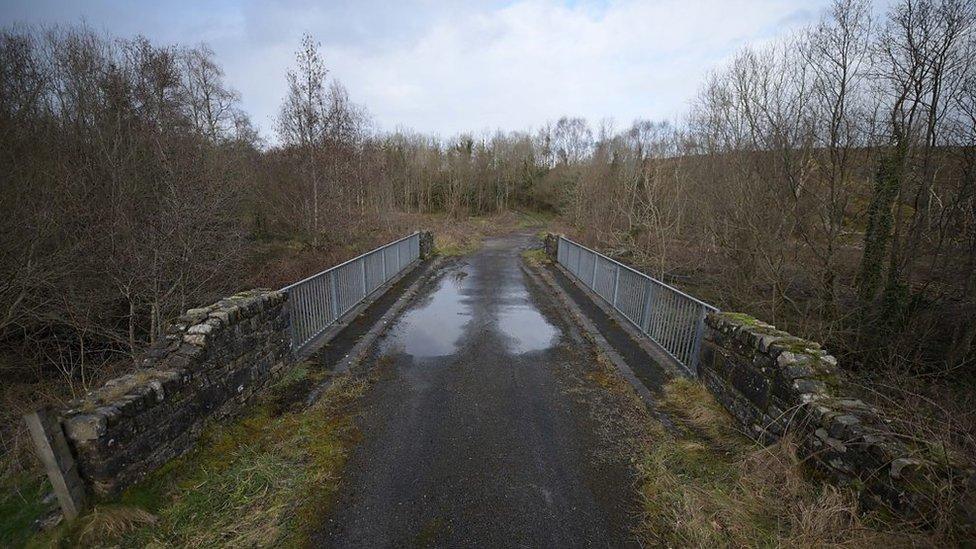Northern Ireland: Talks to be held to try and restore government
- Published
- comments
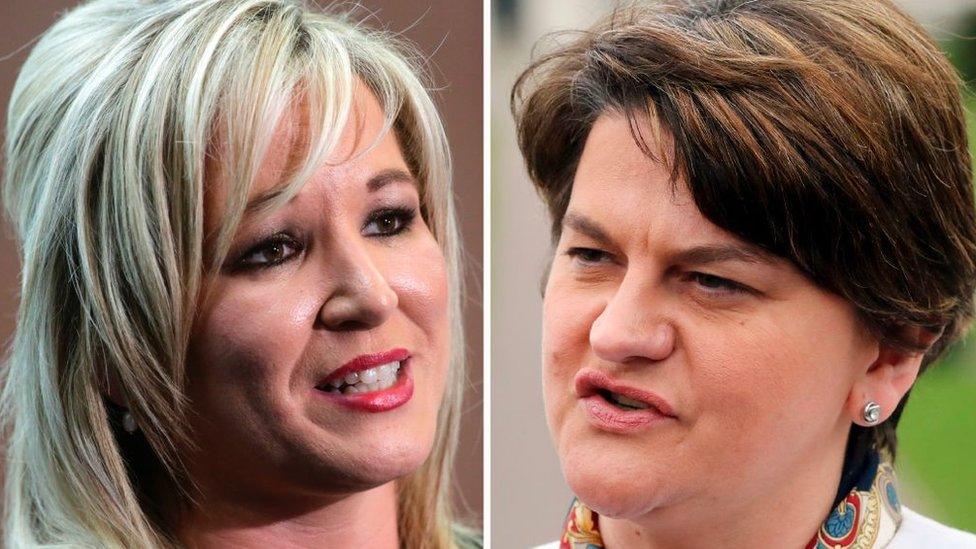
Northern Ireland has been without an government since January 2017, when the governing parties - the DUP and Sinn Féin - had a bitter row.
But there are hopes things could get back on track, after UK Prime Minister Theresa May and Taoiseach (Irish PM) Leo Varadkar announced new talks with Northern Ireland's party leaders.
The news comes following the death of 29-year-old journalist Lyra McKee, who was killed after being shot during a riot in Derry/Londonderry on Thursday 18 April.
Northern Ireland Secretary Karen Bradley confirmed the talks would begin on 7 May.
Why did the Northern Ireland assembly collapse?
In Northern Ireland, the government's power must be shared between two different political parties. This is a result of something called the Good Friday Agreement, which came about to bring peace to Northern Ireland.
The First Minister and Deputy First Minister lead the government - one representing each of the two parties in power. Although they have different job titles, they basically have the same powers and must work together. Together, they are referred to as the Northern Ireland Executive.
But two years ago there was a power-sharing argument between the two governing parties (the DUP - or Democratic Unionist Party - and Sinn Fein), which led to the government at Stormont being dissolved.
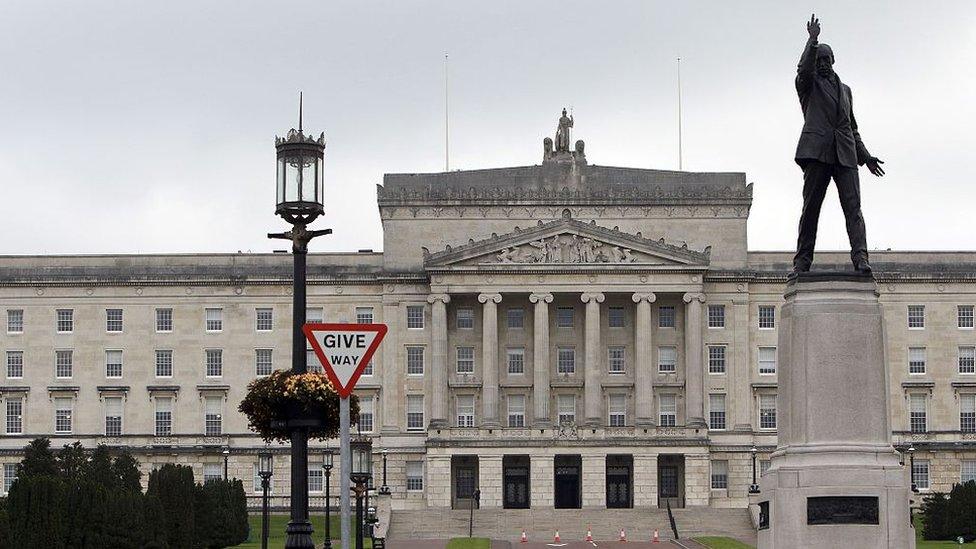
This is Stormont where Northern Ireland's local government meet
Why have these talks been announced?
Since the Northern Ireland assembly collapsed in January 2017, several rounds of talks aimed at restoring the Northern Ireland Assembly, have failed.
The two main parties the Democratic Unionist Party (DUP), who want Northern Ireland to remain part of the UK, and Sinn Féin, who want Northern Ireland to become one with the Republic of Ireland, have failed to find a compromise on issues including Irish language rights and the legalisation of same-sex marriage.
But since Lyra McKee's funeral earlier this week, there has been pressure on the two parties to try and overcome these differences, following comments made by a priest called Fr Magill during the service.
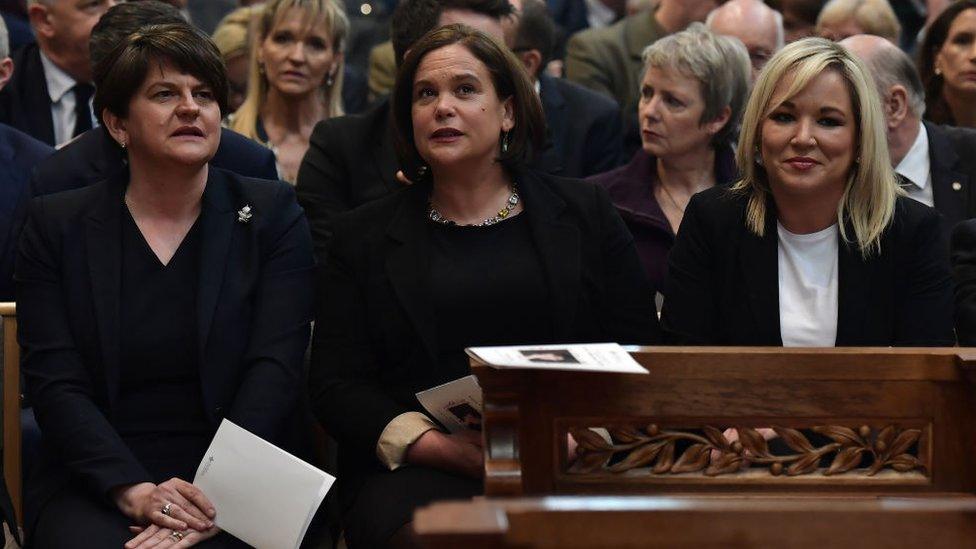
Priest Fr Magill commended Northern Ireland's political leaders, leader of the DUP Arlene Foster and Sinn Féin's leaders Mary Lou McDonald and Michelle O'Neill, for "standing together" to attend a vigil for Ms McKee.
But he then added: "Why in God's name does it take the death of a 29-year-old woman with her whole life in front of her to get to this point?"
When he said this, Fr Martin Magill was applauded and Northern Ireland Secretary of State Karen Bradley said his words had resonated "across the world".
BBC News NI Political Correspondent Gareth Gordon said, "there's no doubt that without [Lyra McKee's] death this announcement of a new talks process would not have happened".
Northern Ireland Secretary Karen Bradley had already said she planned to hold talks about Stormont after the local government elections on 2 May, but several parties wrote urging her to hold discussion urgently following Lyra McKee's death.
Who was Lyra McKee?
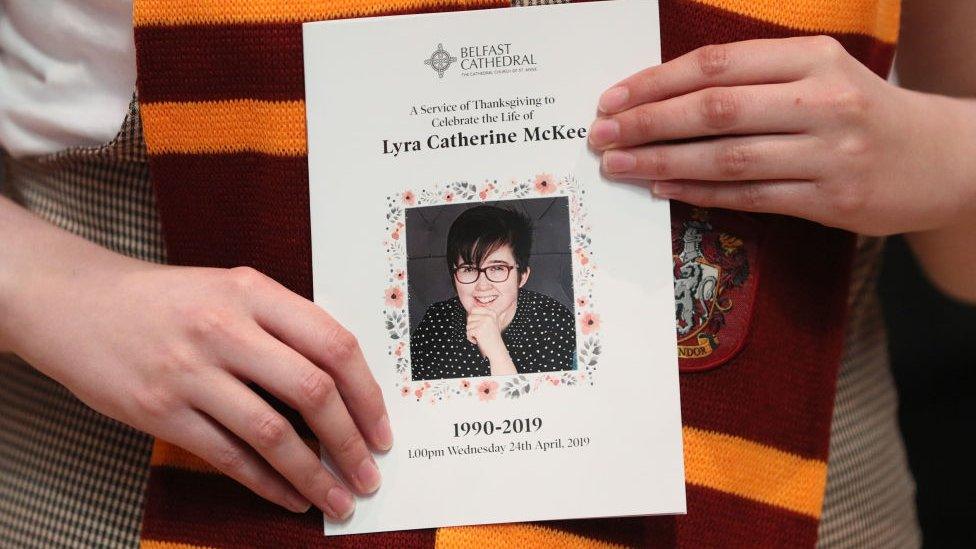
Lyra McKee was a 29-year-old reporter, writer and campaigner.
She was shot and killed whilst covering a riot on the Creggan estate in Derry/Londonderry.
Police have described it as a "terrorist" incident. A group called the New IRA said its members killed her.
What will happen at the Northern Ireland talks?
In their statement, Mrs May and Mr Varadkar said: "In coming together with other political leaders in St Anne's Cathedral to pay tribute to Lyra McKee, we gave expression to the clear will and determination of all of the people of these islands to reject violence and to support peace and a better future for everyone in Northern Ireland."
It added: "The aim of these talks is quickly to re-establish to full operation the democratic institutions of the Belfast/Good Friday Agreement - the NI executive, assembly and North-South Ministerial Council - so that they can effectively serve all of the people for the future."
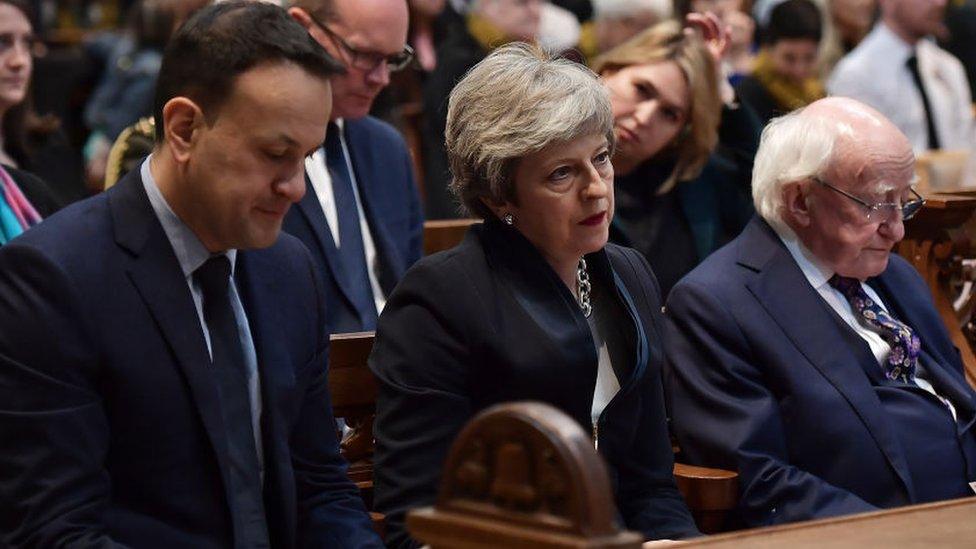
The Irish PM Leo Varadkar, UK Prime Minister Theresa May and Ireland's President Michael D Higgins sat together at Lyra McKee's funeral
There is no plan for Northern Ireland's smaller parties - the Ulster Unionists, the SDLP and Alliance - to have a bigger role.
Irish Minister for Foreign Affairs, Simon Coveney said: "I think what every decent-thinking person in Northern Ireland wants now is to see us take that spark of determination that I think we have all felt in the last few days and to see if we can build a momentum from that to do something real and positive."
He also confirmed that the British-Irish Council would meet on 8 May, a day after the new talks begin.
What are the main sticking points in the NI talks?
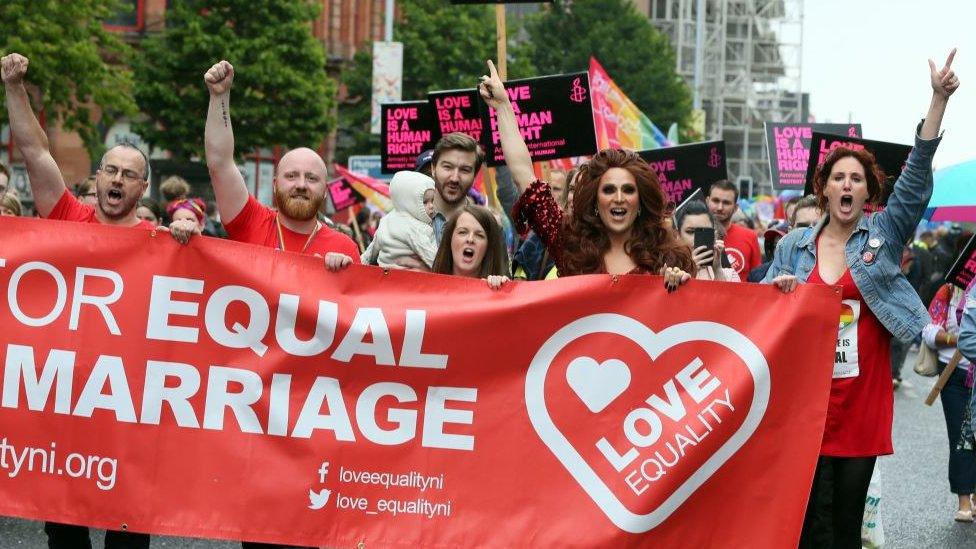
Irish language act: Sinn Féin and the DUP were thought to be close to a deal last year, but talks broke down on St Valentine's Day 2018 due to a disagreement over a "standalone" Irish language act.
Same-sex marriage: Sinn Féin has campaigned for the law to be changed to allow same-sex marriages to take place but the DUP is against this.
RHI scandal: Sinn Féin walked out of Stormont's power-sharing government in January 2017 in protest over the DUP's handling of a green energy initiative known as the Renewable Heat Incentive (RHI) scheme.
What have the parties been saying about the new talks?
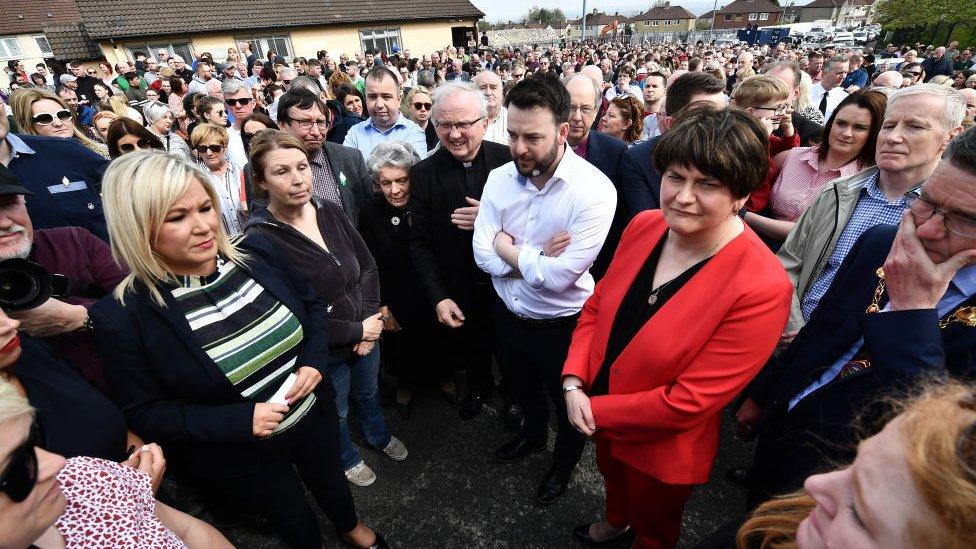
Sinn Féin Michelle O'Neill and Arlene Foster, leader of the DUP attended a rally for Lyra McKee in Derry/Londonderry following her killing
DUP leader Arlene Foster said her party would "enter into these talks with a willingness to find a solution for everybody in Northern Ireland and to get a balanced deal for all of the people".
Sinn Féin deputy leader Michelle O'Neill said the new talks would be "a test", but her party would not agree with the DUP if it was still unwilling to deliver on the issues like marriage equality, language rights, and women's and victims rights.
The US government has also commented, saying: "We encourage Northern Ireland's political leaders to return to the negotiating table to restore the region's local government."
- Published10 January 2020
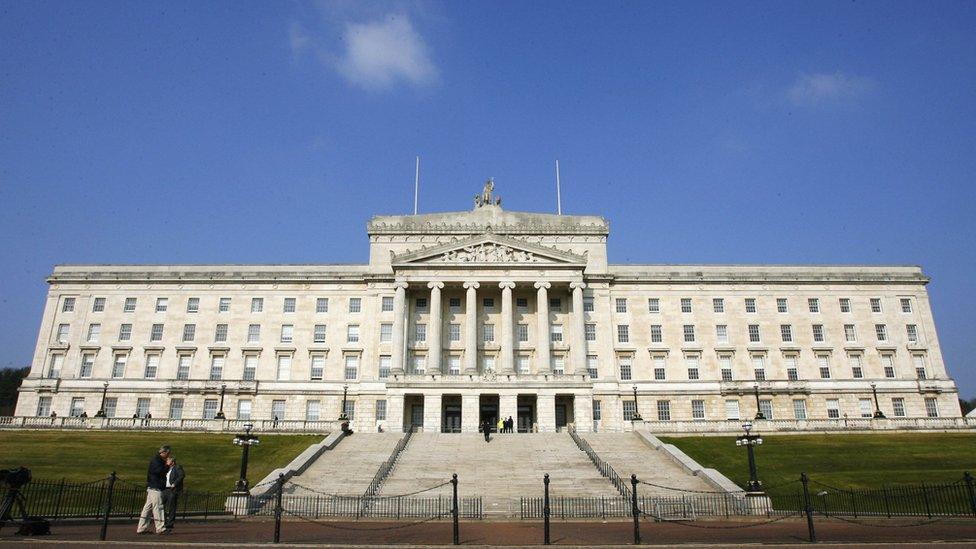
- Published23 April 2019
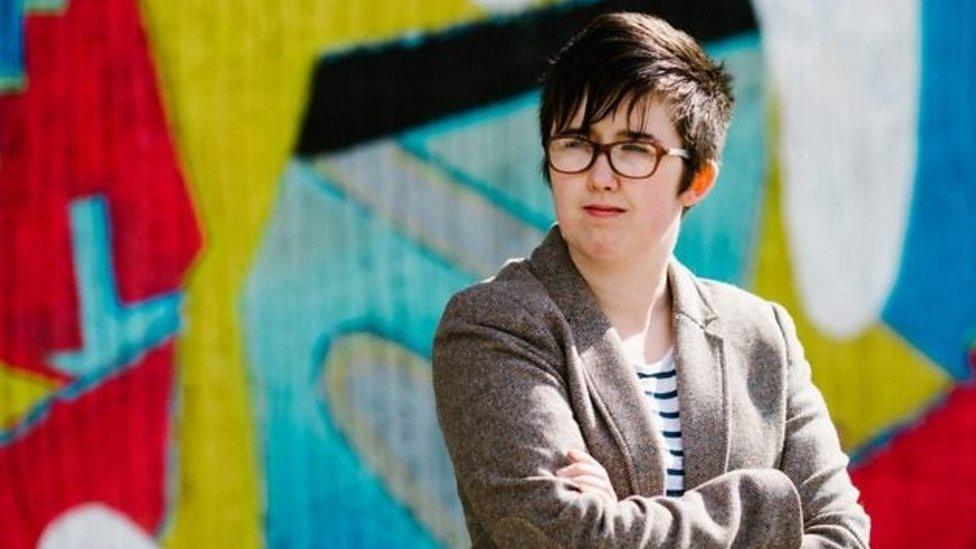
- Published10 June 2017
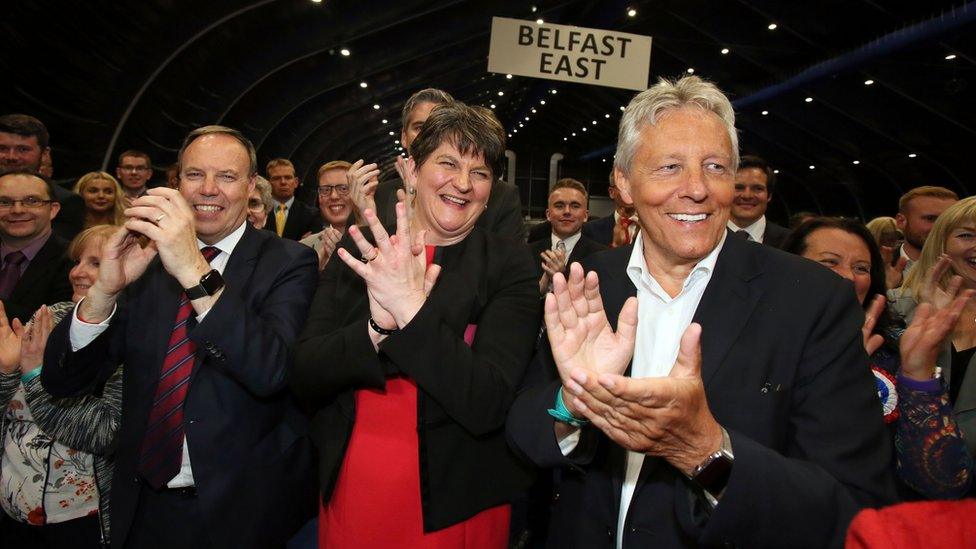
- Published26 February 2019
